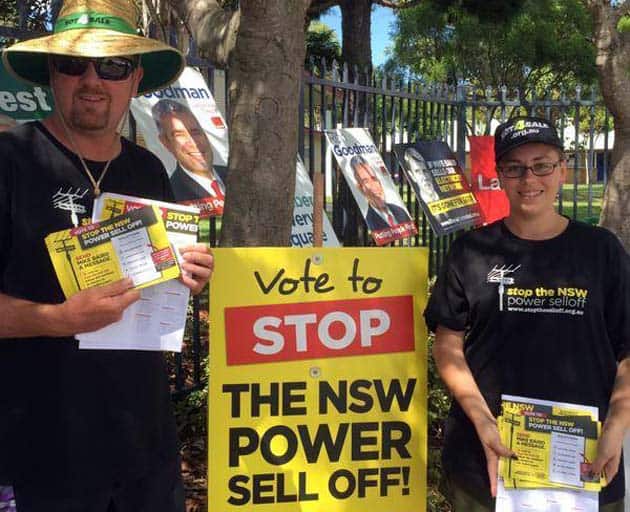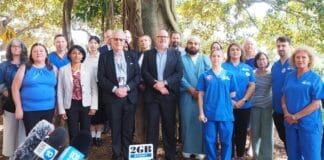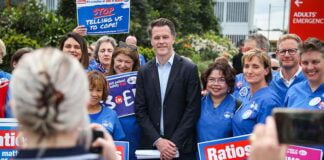After swings against the Liberals in the recent Victorian and Queensland elections, Liberal Premier Mike Baird managed to hold on in NSW. The victory gives Abbott some breathing space—but there was one bright spot with The Greens’ victory in three lower house seats.
Despite a large swing of around 9 per cent to Labor, they were unable to turn the tide following a loss of historic proportions in 2011.
Baird has been telling anyone who will listen that he now has a “mandate” to privatise the state’s electricity poles and wires.
But Baird was elected in spite of his support for privatisation, not because of it. A Galaxy poll just weeks before the election found only 33 per cent supported it, even taking into account the government’s argument that the proceeds would be used to fund transport infrastructure.
Baird is not associated with the kind of savage cuts and bully-boy tactics of Campbell Newman or Tony Abbott. This made it easier for him to get over the line.
Labor and the unions
The disgust with the last Labor government in NSW also runs deeper than in Victoria or Queensland. They pushed through the privatisation of the power generators and prisons, and presided over the running down of public transport. The scale of the corruption by former Labor ministers outranks anything exposed interstate.
The Liberals in NSW have, however, done serious damage to TAFE, workers’ compensation and the public sector. Yet there has not been resistance to this on anything like the scale needed.
The union campaign against the NSW Liberals was called off after two large rallies in 2011, when public sector unions stepped back from strike action to break the government’s pay cap. Individual unions agreed to below inflation pay deals.
As the election approached, Unions NSW organised electoral campaigning against power privatisation and around issues like TAFE cuts, in imitation of the campaigns run in other states.
But this never had the momentum or force of the ongoing public sector pay disputes of ambulance drivers and firefighters in Victoria.
Bright spot
The election’s standout result was the victory of The Greens in three lower house seats: Newtown, Balmain and Ballina. Jenny Leong in Newtown secured the highest vote for The Greens in a lower house seat in any election, with 45.7 per cent before preferences.
Community opposition to coal seam gas mining pushed The Greens to a surprise win in Ballina, and almost saw them win a second seat in Lismore, both previously safe Nationals seats. On election night, Greens leader Christine Milne seized on the result to talk up the prospect of an alliance nationally between The Greens and farmers. Worringly, this fits with her vision of The Greens not as a left-wing party, but one focused on the middle class.
In inner Sydney the planned WestConnex motorway was the major issue, with concern both about increased congestion where traffic exits the new road and about the money going into roads instead of public transport. On election night Jenny Leong pledged that, “what this win means is Newtown matters and there is no way WestConnex is coming anywhere near here”.
But with the Liberals in power, a community campaign of protests and blockades of construction sites will be needed to stop the motorway. The challenge for The Greens is whether they can turn some of the 4000 volunteers that helped the party in the election into local activists fighting WestConnex and fighting privatisation.
Simply building an electoral machine capable of winning seats will not be enough to deliver change.
The Liberals look like they will need the support of the Fred Nile’s Christian Democrats in the upper house to approve privatisation.
The hope that a union campaign could see the Liberals voted out failed.
The unions need to launch the industrial campaign against the power sell-off that they have avoided so far. Electrical Trade Union and the United Services Union members at Ausgrid and Endeavor Energy, who are facing privatisation, have begun limited industrial action demanding protection for their jobs under a new private owner.
A concerted campaign of strike action opposing privatisation could win widespread support and put serious pressure on both the Liberals and any upper house MPs supporting privatisation.
The key battles for unions and The Greens over the next three years will be in the workplaces and on the streets.
By James Supple






